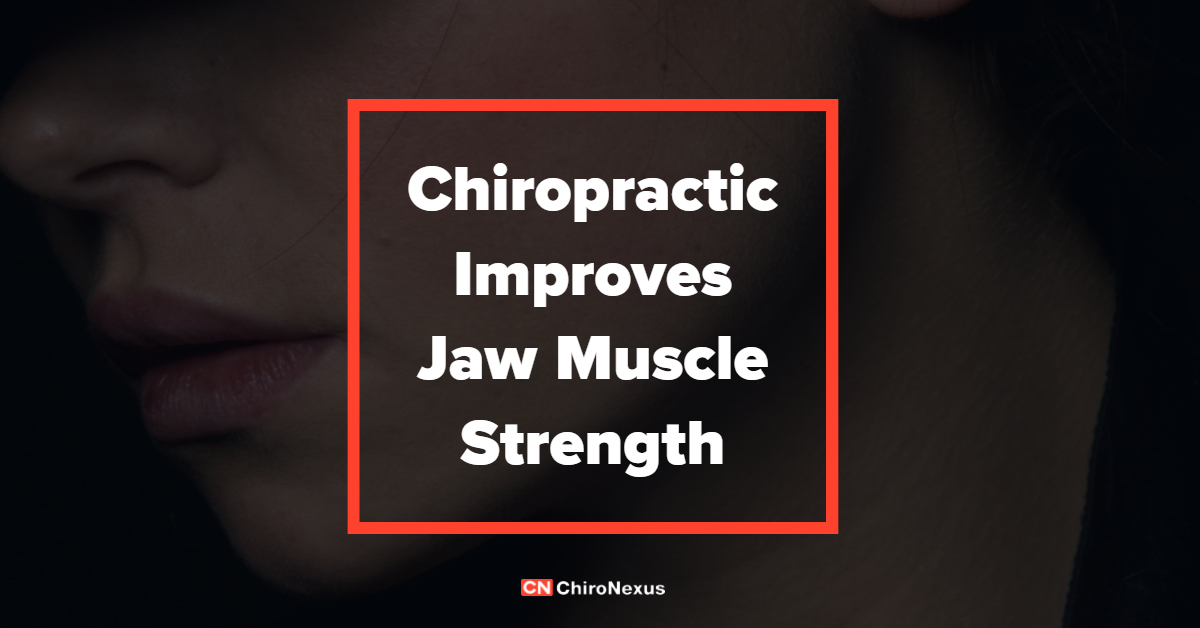Chiropractic Improves Jaw Muscle Strength
Chiropractic adjustments work by improving the function of your central nervous system. Because of traumas, injuries, or daily stresses and strains, it's common to experience limitations in function or pain that can originate in the spine. Chiropractic's goal is to find those restrictions and restore normal function.
A recent study from leading chiropractic researchers shows that chiropractic adjustments are effective at improving neuromuscular function of the temporomandibular joint. In this study, the authors started with 28 test subjects who had no experience with chiropractic. 14 were given a sham "adjustment" by a non-chiropractor and 14 were given real chiropractic adjustments by a chiropractor with ten years of experience.
The researchers tested each subject for jaw bite force before, immediately after, and finally at one-week after the study intervention. The objective was to see if there were any changes or differences in muscle strength due to chiropractic.
The authors found that the subjects who received real adjustments had their bite strength increased by 11% immediately after the intervention and that the results last for an entire week, with a 13% increase in bite strength at that final follow-up.
This study is important for two reasons:
First, other research has also found that chiropractic adjustments can affect muscle strength in other parts of the body than where the adjustment takes place. This research shows that chiropractic adjustments can affect the functioning of the nerves in the brain, brainstem, and spinal cord, which can, in turn, improve nerve and muscle function in other parts of the body.
Second, previous studies have found that chiropractic is beneficial for patients with TMJ pain, and there seems to be a strong link between jaw problems and dysfunction in the cervical spine. By adjusting the neck, chiropractic is able to restore the normal spinal function and relieve the problem in the jaw.
The authors conclude:
"Knowing that spinal function can have an impact on jaw function has functional implications for patient populations. It is possible that chiropractic spinal manipulation may influence the clinical outcomes for patients with TMJ disorders, as has been suggested by individual case studies. Future research should further investigate this using properly powered clinical trial designs."
Haavik H, �zyurt MG, Niazi IK, Holt K, Nedergaard RW, Yilmaz G, T�rker KS. Chiropractic Manipulation Increases Maximal Bite Force in Healthy Individuals. Brain Science 2018 Apr 27;8(5). pii: E76. doi: 10.3390/brainsci8050076. PubMed PMID: 29702550.



